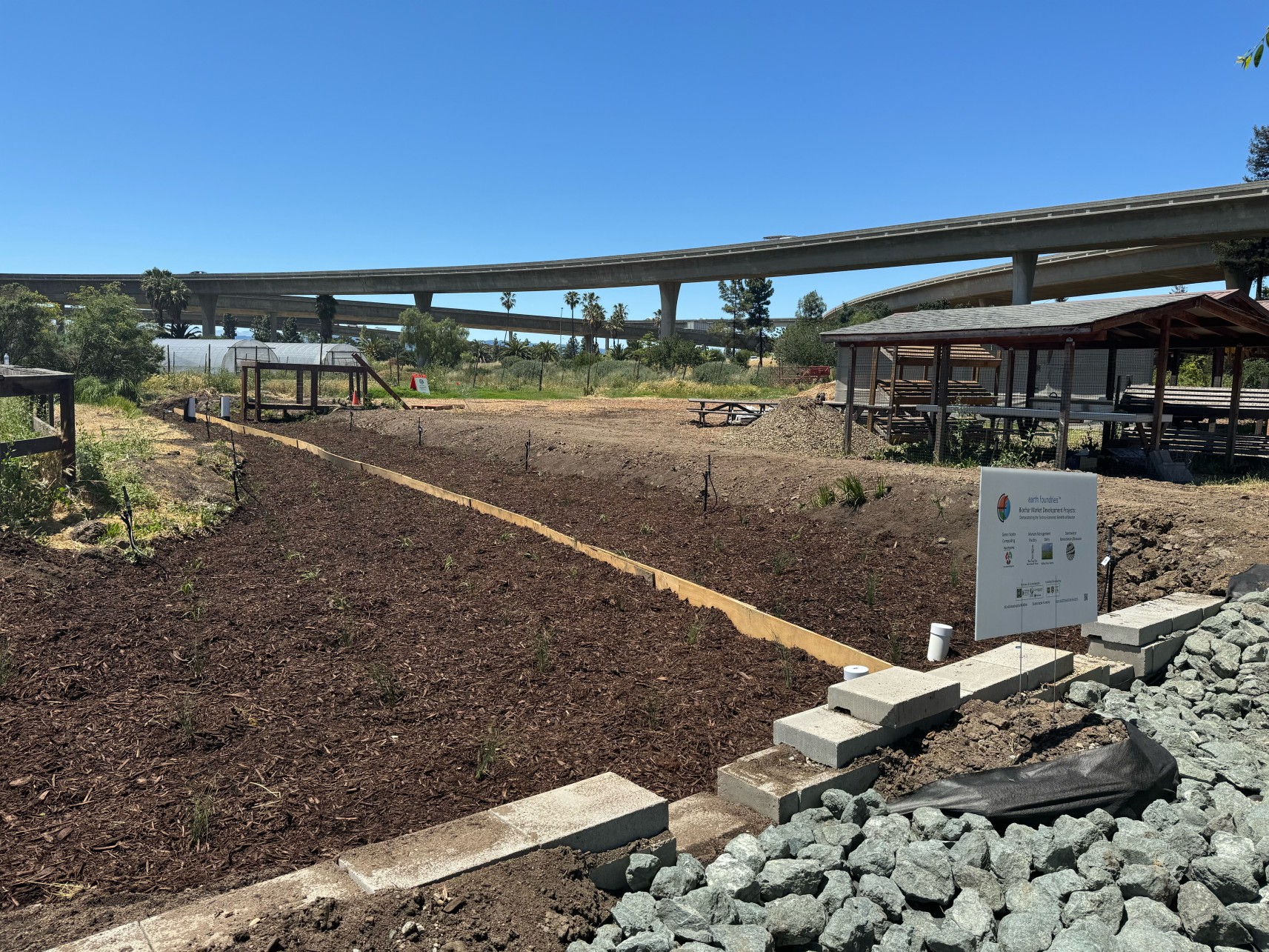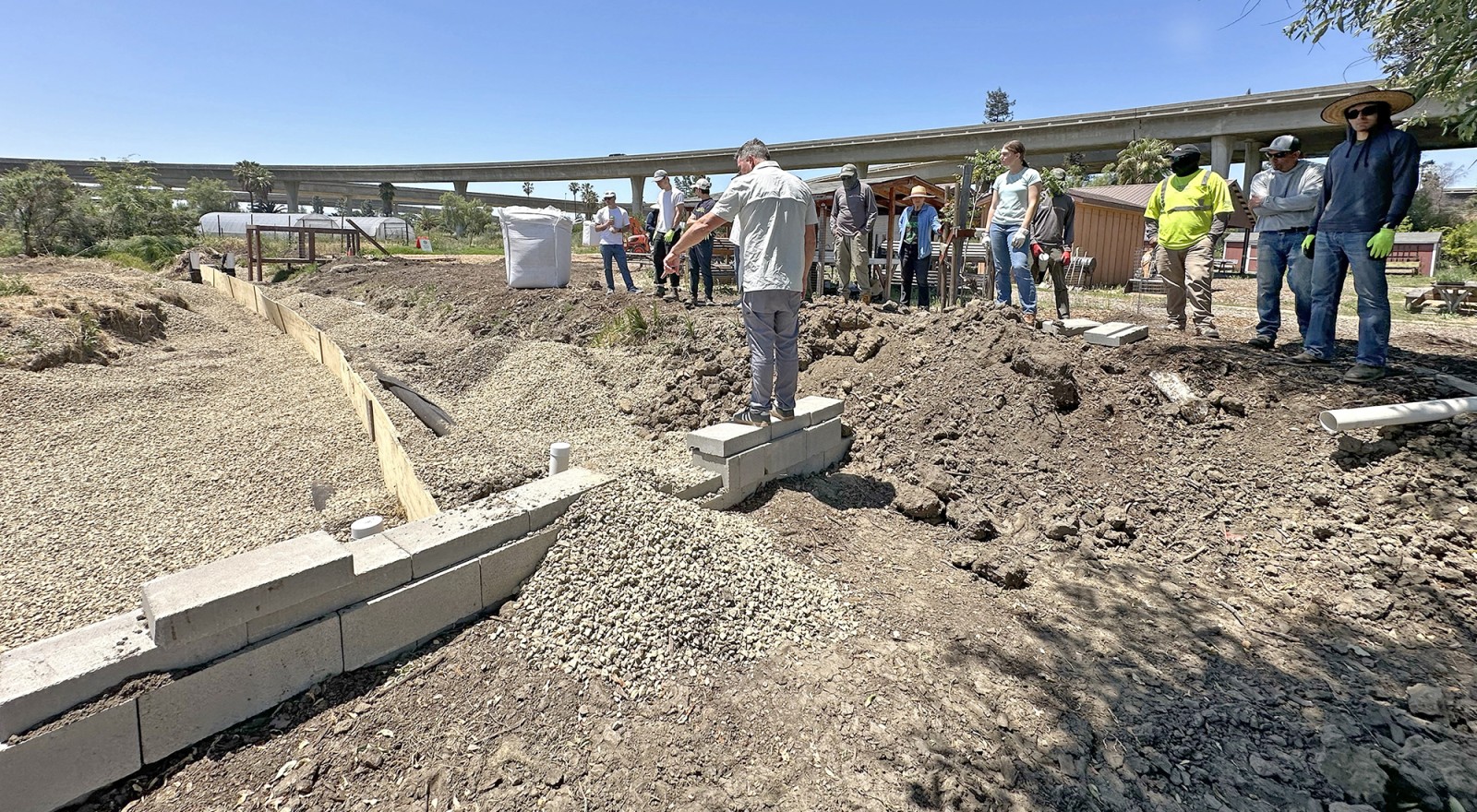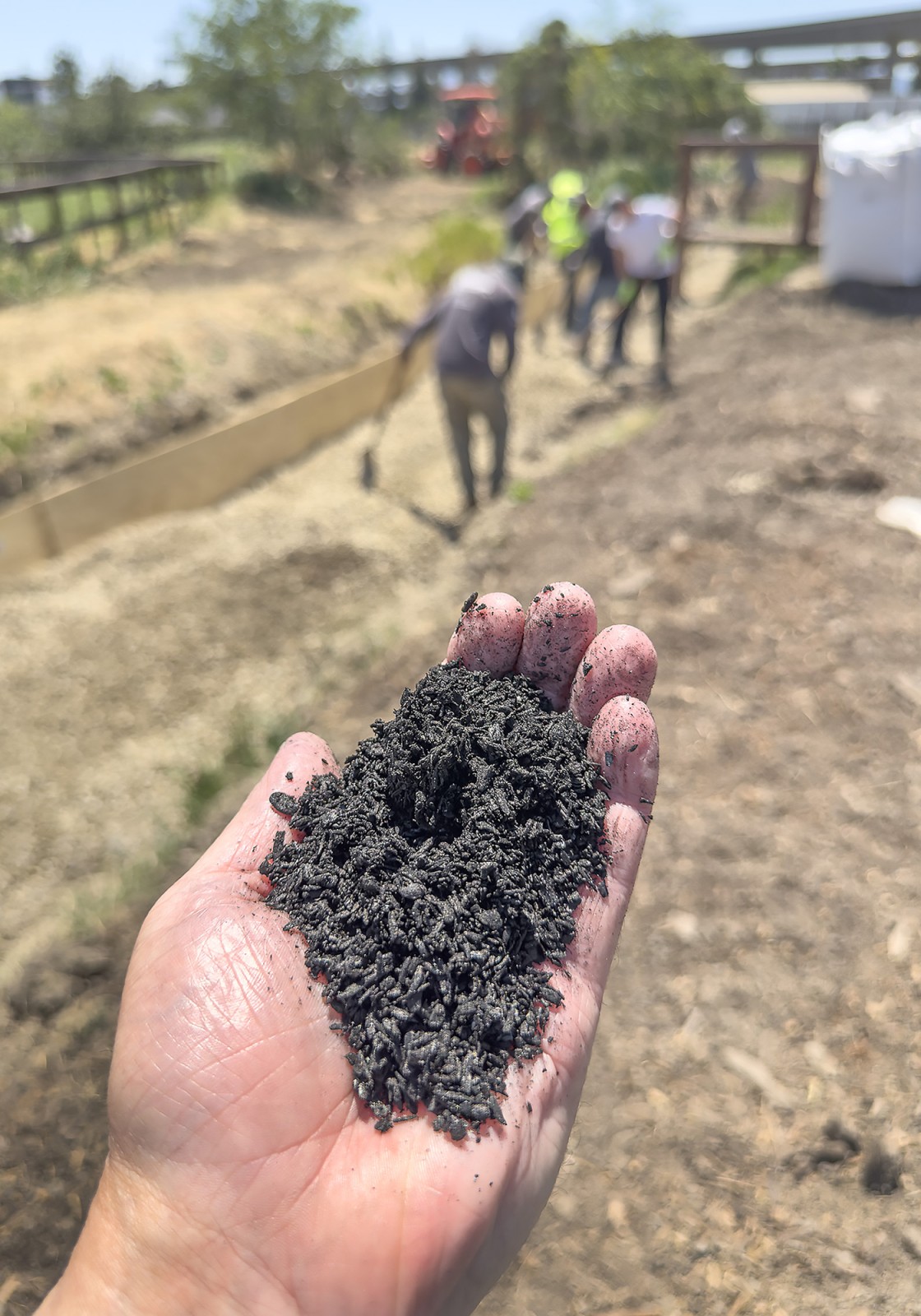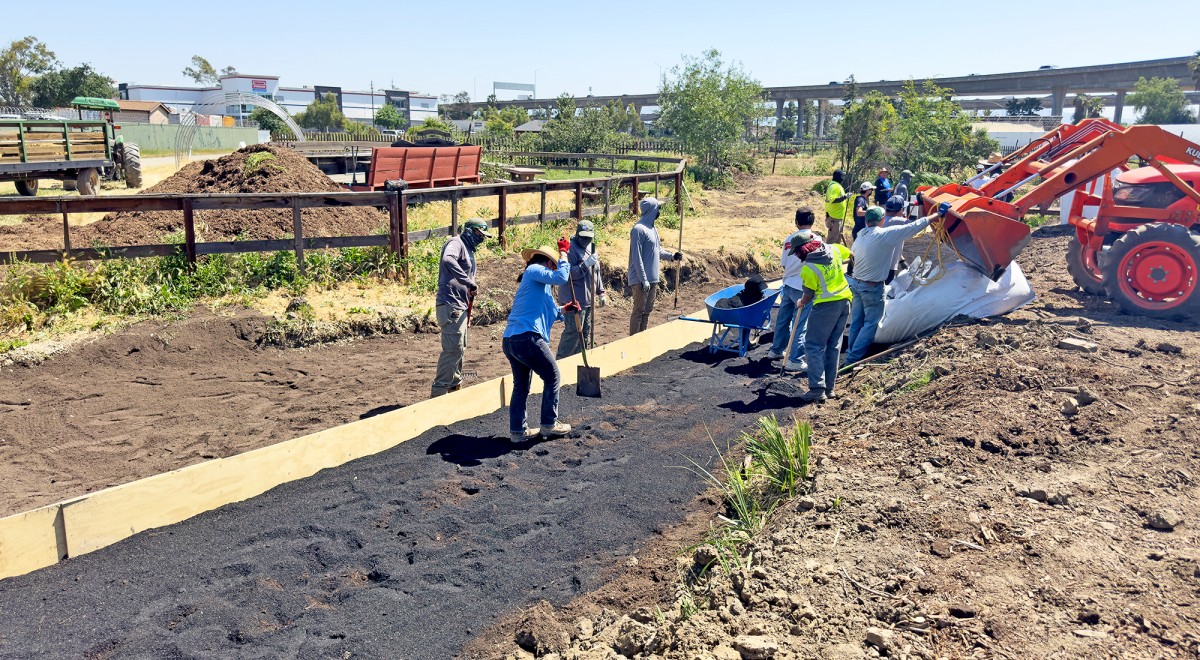In partnership with Earth Foundries, we recently consulted on a project to sequester carbon, reduce flooding, and improve water quality in East San Jose.
Using regional expertise and locally-sourced biochar from wood materials that would otherwise go to waste, Earth Foundries, in partnership with Sonoma Ecology Center, ReScape, the North Santa Clara Resource Conservation District, and Veggielution, installed a new multi-benefit bioswale at Veggielution Community Farms.
Bioswales are resilient, efficient, low maintenance, and attractive stormwater solutions that use plants, soil and other natural materials to filter stormwater runoff from developed areas, before it enters the natural water system.

The completed bioswale at Veggielution Community Farms. Sonoma Ecology Center was engaged to incorporate locally-produced biochar, which is expected to revitalize the soil and nourish plants. This bioswale would filter stormwater runoff, thereby improving water quality of our groundwater basins. We will be studying and measuring the effects of biochar from this bioswale. Photo courtesy of Earth Foundries.
Taking advantage of the opportunity to replace an old, failed system that previously caused annual flooding issues on the farm, the partnership implemented a new and improved bioswale that will reduce frequent farm flooding during the rainy season, improve stormwater management, soil health, plant growth, and water filtration. Additionally, the project provided classroom and hands-on training on sustainable landscaping and bioswale design and installation to community members, carried out by ReScape.

Bioswale designer Cielo Sichi preps the volunteer bioswale construction crew. The biochar was placed in the right section of the bioswale. Photo: Raymond Baltar.
This project incorporates the use of locally-produced biochar, Sonoma Ecology Center’s expertise, to demonstrate its potential benefits for stormwater remediation, soil revitalization, plant nourishment and removing impurities. Biochar is a carbon-rich soil amendment produced from wood products that would otherwise go to waste. These sustainably-sourced biomass are often byproducts of shaded fuel break efforts to reduce wildfire risks.
“Biochar has been shown to reduce heavy metals and chemicals washed from roadways as well as to mitigate minerals leaching from old mine sites into nearby waterways. And it has also been shown to adsorb nutrients such as phosphorus and nitrogen that may be present in runoff from farming activities. This bioswale was split into two channels, one with and one without biochar, and both will be monitored for water quality differences after stormwater runs through the system. We look forward to seeing the results once rains start this winter,” said Raymond Baltar, SEC’s Climate and Biochar Project Manager.

Biochar, a highly porous and stable form of organic carbon. It is used in this project to study how biochar can increase water filtration and drainage, leading to better stormwater management. Sonoma Ecology Center has conducted extensive studies of biochar’s potential in sequestering carbon, filtering water, and improving stormwater management. Photo: Raymond Baltar.
“Sonoma Ecology Center was retained on this project to help develop best practices for the use of biochar in bioswales, a relatively new use case for this highly adsorptive material,” Raymond continues.
“We’re excited to have this new biochar-enhanced bioswale that will finally solve our yearly flooding problems, protecting food crops that are so important to our mission,” said Marie Millares, Facility Director at Veggielution. “We’re also pleased to provide hands-on training to our community on bioswale design, installation and maintenance.”

Volunteer crew spreads biochar on one side of the bioswale. Water samples will be taken over time from each side of the bioswale to determine differences in water quality. Photo: Raymond Baltar.
“Showcasing the many beneficial uses of biochar in applications like stormwater management is crucial for expanding its market potential,” said Dede Smullen, Chairwoman and Co-Founder of Earth Foundries. “Our company creates biochar from unmerchantable forest materials removed during hazardous fuel reduction and forest health projects.”
Milena Fiore, Executive Director of ReScape added, “This innovative bioswale project aligns with ReScape’s mission of promoting regenerative landscaping in harmony with nature to address climate change and environmental challenges. This collaborative project also provides an opportunity to train community members on sustainable landscaping principles championed by ReScape.”
As part of the grant project, Earth Foundries will monitor the bioswale to understand further the benefits biochar can provide for stormwater management, soil health, plant growth and water filtration. The project started in May and concluded in June 2024. The bioswale project is one of four Bay Area projects implemented as a part of Earth Foundries’ US Forest Service and CAL FIRE grant-funded Biochar Market Development program, which aims to showcase the techno-economic advantages of using biochar across various applications. It also used grant funding from Valley Water.
